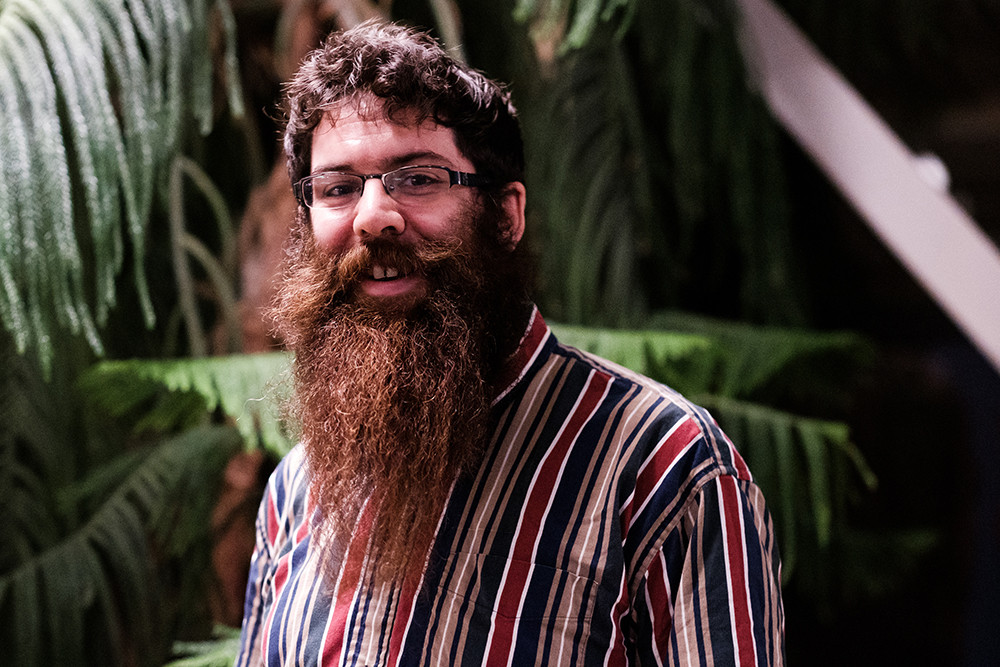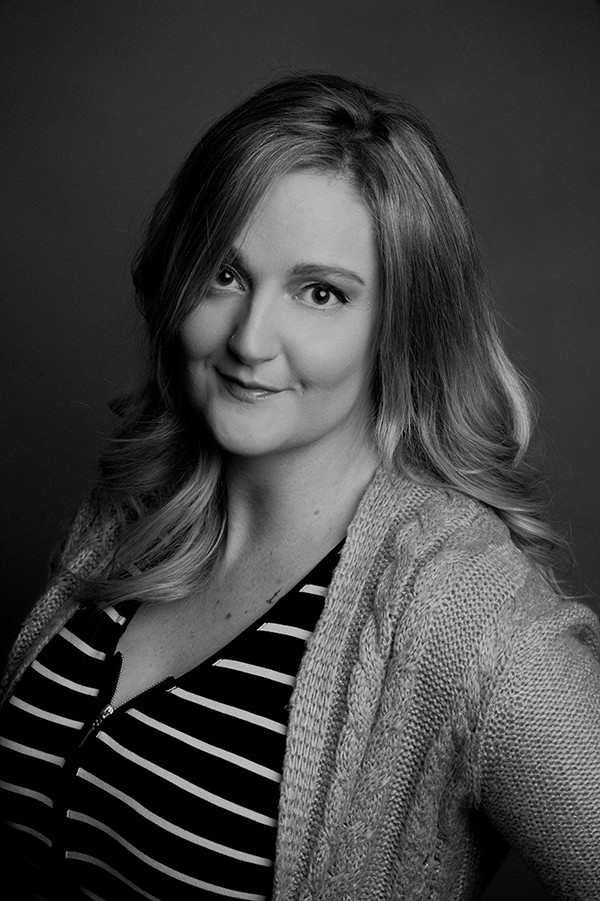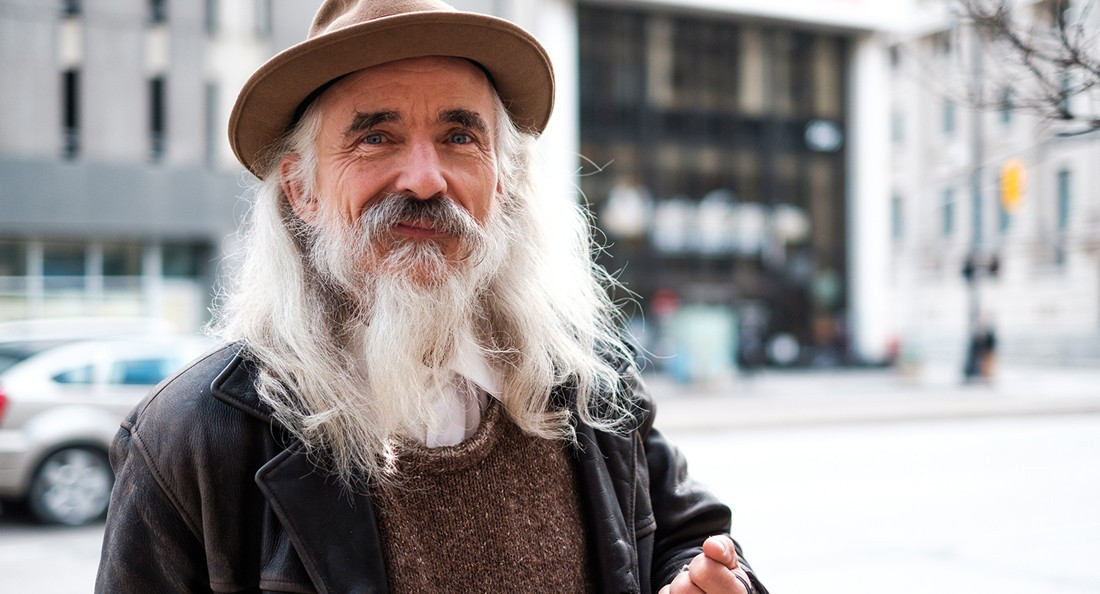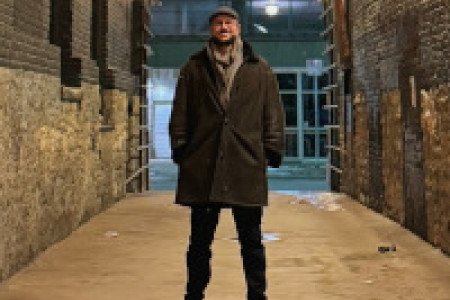Behind the debate
Public discourse as spectacle, failure and our last chance at civility
Ed Ackerman has a knack for headlines. During his 2018 run for mayoral office in Winnipeg, he generated more inscrutable one-liners than all of his many opponents combined.
Perhaps most memorably, when asked during a CBC live debate how he would keep Winnipeg’s young people in the city, he held up a sign that said, “Dam the Panama Canal.”
On Oct. 22, VICE published an article entitled “Winnipeg’s Sad, Weird City Election.” Ackerman’s “Dam the Panama Canal” was featured in the very first sentence of the article.
The weird thing is that Ackerman doesn’t like headlines.
“The debates went fine,” he says from his unofficial campaign headquarters at Video Pool, a media arts organization in The Exchange.
“The problem is that’s all it was was debates. And because there’s eight candidates, it meant it was a reach-for-the-top show without the buzzers ... The debates (were) just headlines, no paragraphs, just the headlines.”
What Ackerman describes is a public forum where arguments are conducted in 30-second and one-minute sound bites, a game that nobody can win, because nobody’s allowed to play.
Then the interview pivots from meta-analysis of debates, and Ackerman is back to headlines.
“Treaty 1,” he says. “It’s a bad deal. Let’s fix it. Homelessness started with Treaty 1.”
All of this sounds like something that probably didn’t happen here.
But it did.
Video Pool is less than a hundred metres from my apartment.
Treaty 1 is the ground beneath my feet.
And after a debate of headlines, Winnipeg itself has become a headline.
Be it resolved
The mayoral scrum that landed Winnipeg in the international funny pages is not this year’s only instance of a fiercly contested local public debate.
This summer, in anticipation of profoundly polarizing intellectual Jordan Peterson’s tour through Winnipeg, local supporters hosted a “Jordan Peterson Meetup.”
Peterson came to notoriety in 2016 when he refused to use the requested pronouns of his students and fellow staff at the University of Toronto.
The Facebook page for the meetup said the event would be a safe place in which to discuss Peterson’s ideas.
“Racist, sexist xenophobe or conservative here? Defender of free speech or oppression?” the description read. “Love him, hate him, come out and discuss Canada’s most controversial intellectual! ... This is a neutral event, neither officially supporting nor condemning the ideas of the author.”
More recently, on Oct. 26, Life’s Vision Manitoba Inc., an anti-abortion organization, planned to host a debate entitled Abortion: Is it a Woman’s Right? After significant public response to the event, the organizers posted in the
Facebook event:
“We are not forcing anyone to attend this debate, but if you are interested in listening to what both parties have to say, then come on down ... (The debaters) both care very much about this issue and about having a respectful, thoughtful, and open-minded debate.”
The pro-choice candidate backed out, and the event went ahead as an information session by the remaining pro-life debater.
The debaters were both men.
These events all make statements about what will be debated: Is Jordan Peterson good or bad? Is abortion a woman’s right or not?
But are they also making a statement about the nature of debate itself?
Bodies and brains
Self-professed former pro-life advocate Cody Gabrielson attended the restructured Abortion: Is it a Woman’s Right? event. He says the question of whether two men should be debating the rights of bodies they don’t themselves inhabit came up during the event Q and A.
Cody Gabrielson, former pro-life advocate, attended what became of the abortion debate.
“Someone asked at one point if they even tried to find a woman to debate, and apparently they did, they actually tried for months, but any women that they asked said no,”Gabrielson says.
He’s not surprised.
“What essentially you’re asking (women) to do is debate for their rights, which they’ve fought really hard (for) ... It’s not really a fair thing,” he says.
For Liz Kessler, a community member who helped organize the Jordan Peterson Is Not Welcome in Winnipeg Facebook group this summer, this response indicates a very particular idea of what it means to have a debate, one which she says Peterson and his supporters are wont to support: that what matters at the end of the day is the idea itself, not who is expressing it.
“It’s a basic feminist premise that lived experience matters. Often what I think is called intellectual or theoretical or rational ways of thinking (are) often just a very patriarchal perspective on the world,” she says.
“I think it’s a way of seeing (where) only one way of looking at the world is valid and that women’s perspectives and the perspectives of trans folks and the perspective of People of Colour is not intellectual enough, often because those people are shut out of the academy.”
According to Kessler, events like the abortion debate or the Peterson meetup are examples of content trumping form; of how a well-intentioned attempt to organize fair and balanced debate can justify excluding the very bodies and identities that are being debated.
Sometimes, Gabrielson and Kessler are saying, the price of reason is people.
History lesson
The opposition of intellect and lived experience in public discourse has a history. Jason Hannan is an associate professor at the department of rhetoric, writing and communications at the University of Winnipeg.
“I think the best academic authority on this is Jürgen Habermas and his concept of the public sphere,” Hannon says.
Jason Hannan is an associate professor at the department of rhetoric, writing and communications at the University of Winnipeg. // Supplied photo
“He argued that (the) shift and transition from a feudal society into a liberal democratic society coincided with the ... rise of these spheres of public discussion. The kinds of models he used were coffee shops, salons in France (and) the townhall discussions in the United States.”
Hannon says this vision of a utopian democratic society faces a major difficulty that finds its roots in 18th century science and philosophy.
“We have and we’ve always had, ever since the dawn of the Enlightenment, ever since the dawn of the modern era, a belief in ... abstract reason, where you can have disembodied debate where ideas in the abstract clash with each other in the intellectual marketplace.”
Hannon says a useful framework for understanding the limits of reason – and therefore the limits of any particular person to speak to a particular issue – is Sandra Harding’s standpoint theory.
“It’s the idea that there are some types of knowledge that we can access regardless of our personal standpoint if we’re dealing with mathematics or logic or something like that. But then there are other forms of knowledge that are rooted in practical experience,” he says.
“That doesn’t mean I’m not able to learn about (the experiences of others) through whatever sorts of creative feats of empathy or listening to the other. But there are forms of knowledge, understanding, wisdom, perspective and insight that come from practical experience that those who are just not in the shoes of those people will have a very difficult, if not impossible time being able to appreciate.”
Closer to home
Local stand-up comedian Carole Cunningham was one of the first to widely share the Abortion: Is it a Woman’s Right? Facebook event. She says the subsequent response she witnessed on social media was characterized by shock.
“Most of the questions on my Facebook were ‘where is this.’ And I said ‘Winnipeg,’ and that was the shocking part for most people and for me, too. Like ‘where is this?’ ‘Oh, the States, not surprising.’ No, it’s in Winnipeg, down the street,” Cunningham says.
Carole Cunningham was part of the large group of online activists who protested the recent Winnipeg abortion debate. // Supplied photo
Until a month ago, I played in a band whose bass player listened to Jordan Peterson podcasts. As a trans person, I know that, as Cunningham pointed out in her interview, abortion is an issue that is hardly exclusive to women. It’s hard to want to attend an event describing itself as neutral and safe when I know there’s a chance someone will disrespect my pronouns to make a point.
All of this feels really close to home.
Paradoxically, bringing debate closer to home is precisely what Kessler and Hannon say we urgently need to do.
“As an activist and as someone who spends a lot of time thinking about left-wing ideas, it’s really easy for me to spend all my time with people like me,” Kessler says.
“I think it’s really important to get to know your co-workers and your neighbours and whoever’s around you ... and just have relationships with them, have lunch with them so that you get to know them on a level that’s personal and where you care about each other.
“I think having those kinds of relationships forms the basis for the possibility of those hard conversations down the road.”
For Hannon, the face-to-face nature of classroom debate is a critical space to learn the skill of sensitive public discussion.
“Schools can play a very important role in cultivating an etiquette, a culture, an ethos of democratic dialogue and discussion,” he says. “It’s not the kind of thing you can acquire in an instant. It’s like any sort of complex skill.
“The culture of democracy is rapidly deteriorating ... My view is that we need to do everything we can to preserve civil culture and civic discussion.”
Behind the headline
So why did Ed Ackerman want to dam the Panama Canal?
“Winnipeg (has been) in a downhill trajectory ever since the dam was built,” he says.
“If you’re making whiskey in Ireland and you need to get it to Victoria, B.C., you had to take it through Winnipeg. Everything came through on the train until the Panama Canal was built ... (Winnipeg) was the gateway to anything going west.
“We’re overbuilt with warehouses, and now, why do we exist? There’s a problem with existence ... It’s actually the problem with Winnipeg that we have to solve.
“It’s admitting what we are.”
Behind the headline is a paragraph.
Behind the debate is an idea about debate.
And maybe this is the problem of debating itself. Maybe it’s a problem with existence. A problem of not just what we are talking about but who is doing the talking.
Maybe debate begins with admitting what we are.
Published in Volume 73, Number 9 of The Uniter (November 8, 2018)







